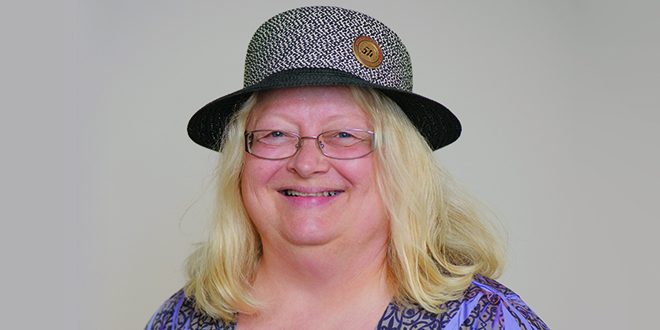People with type 2 diabetes write back to their younger selves, to share personal insights and reflect on their experience of living with diabetes and starting on insulin therapy. In this post, Alison reflects on living with diabetes.
When Alison was diagnosed with type 2 diabetes at 47, she took it seriously, and began dieting and exercising. She had been close to a man with diabetes who later died from its long-term complications. “I didn’t want that to happen to me,” she says.
After around five years of controlling her blood sugar through diet and exercise, a new doctor put her on pills and her diabetes seemed to be well managed for the next 10 years. Around the time that Alison retired from a 25-year career as a deli manager for a large grocery chain, a medical professional recommended that she add insulin to her treatment plan. Alarmed, she took it as a negative judgement upon her efforts.
But her real worry was how it would affect her relationship with Roger, a new boyfriend. After all, he had only recently been widowed and his wife had suffered from complications related to diabetes for 15 years before she died. Alison felt pretty sure learning that she had diabetes and was taking insulin would not be welcome news to him. She remembers asking herself: “after all he went through, why wouldn’t he want to break up with me?”
Rather than tell him directly, Alison began leaving her medications and needles in more prominent places around her house. Now 62 she is writing to herself at this moment, in the autumn of 2016.
Dear Alison
I know you’ve been struggling for several months now, trying to get your diabetes under control. Using insulin is pretty new to you. You’ve maintained good control for the past 14 years. When the clinical pharmacist you’ve been working with tells you that insulin therapy is the next best step for controlling blood sugar levels, you’re scared. A former companion lost a leg and then his life from uncontrolled diabetes. You are thinking: I have too much left I want to do!
Further, your new guy had a wife who died after many years of suffering from severe diabetic complications. You wonder if he will still want to be with you when he finds out that you have type 2 diabetes too. And you, yourself, have a history of so many things to overcome: childhood abuse and being the ‘fat girl’. Alison, can you deal with one more thing?
I know you can. Think back about all the obstacles you’ve overcome. Trust yourself to make the right decisions now. You will have difficulty with the day-to-day mechanics for quite a while: blood sugar testing, remembering to even take your insulin, changing your eating habits and losing some weight. You’ll get it all down in time. Remember when you were first diagnosed and weighed 23 kilograms more than you do now? You can get your eating under control and that will help.
I know that you are really falling for Roger. Trust that he feels the same way and lean on him for his experience with this disease. He knows so much about managing carbohydrates, eating and physical reactions. He can help you and he will never judge you on your successes or failures. He will help you feel ok about your bad days and tell you ‘good job’ on good ones. The two of you will be stronger for this.
Last, just two words: trust yourself. You can and will survive. Know that with proper care and commitment you can keep from being a statistic about long-term complications, or even loss of life or limb.
With trust and love,
Alison
This story has been edited by Ellyn Spragins and shared with support from Novo Nordisk Canada. The views and opinions expressed are not representative of Novo Nordisk, and should not be considered treatment advice. Novo Nordisk has permission to share this letter and included personal details.
 Diabetes Care Community Learn, connect and care
Diabetes Care Community Learn, connect and care




